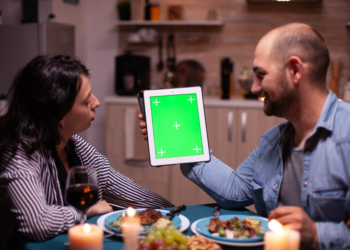
Image by prostooleh on Freepik
Embarking on your first camping trip is an exciting journey of exploration and self-discovery. It’s a chance to connect with nature, escape the daily grind, and create lasting memories. For newcomers, the experience can be both thrilling and a bit daunting. To ensure your first camping adventure is a resounding success, we’ve gathered comprehensive advice, complete with practical tips and examples.
Choose the Right Campground
Selecting the perfect campground is the cornerstone of a memorable camping trip. As a beginner, look for established campgrounds that offer amenities like clean restrooms, potable water, and designated campsites. For example, “Pineview Campground near Lake Hiker’s Paradise” is known for its well-maintained facilities and breathtaking views.
If you are venturing deeper into the wild, looking for some form of natural protection from wind is highly advised as well. Setting up your camp at the foothills will provide exactly that while also giving you solid protection against wildlife. Also, make vicinity to rivers, streams, and hiking trails one of your priorities.
Finally, be sure to consider the season. For instance, summer camping will entail an entirely different set of camp requirements than the autumn or winter adventure.
Start with the Right Gear
Quality camping gear is essential for a comfortable experience, but you don’t need to break the bank. Consider borrowing or renting gear to keep initial costs down. Essential gear includes:
- Tent: Opt for a reliable 3-season tent, like the “Coleman Sundome 4-Person Tent,” which is easy to set up.
- Sleeping Bag: A versatile option is the “REI Co-op Siesta 30 Sleeping Bag.”
- Camp Stove: The “Jetboil Flash Cooking System” is efficient and easy to use.
- Cooler: The “Yeti Roadie 24 Cooler” keeps food fresh.
For your first meal, try a classic camping dish like “Campfire Chili.” Prepare it at home, store it in a sealable container, and heat it over the campfire. Another easy option is “Grilled Veggie Skewers.” Chop your favorite vegetables, marinate them in olive oil and spices, and grill them on skewers for a delicious campfire meal. Also be sure to always have one of the quality automatic knives with you. These simple and portable tools can handle a whole range of duties from cutting branches to digging holes and opening cans.

Image by Freepik
Practice Setting Up Your Gear
Before venturing into the wilderness, practice setting up your gear in your backyard or a nearby park. This hands-on experience will familiarize you with your equipment, reduce setup time at the campsite, and ensure all components are present and functional. This experience will prove to be more than helpful if you need to set up the camp with the storm approaching. Also, be sure to know how to light fire anyplace with any kind of resources available at the moment.
Plan Your Meals
Delicious campfire meals are a highlight of the camping experience. Plan easy-to-cook, one-pot wonders like:
- Breakfast Burritos: Prep tortillas with scrambled eggs, cheese, and your favorite toppings.
- Hobo Packets: Wrap seasoned meat, potatoes, and veggies in foil and cook over the campfire.
Carry a small camp stove like the “Coleman Classic Propane Stove” for cooking convenience. Don’t forget to pack energy-boosting snacks, such as trail mix and granola bars. This is yet another case where you could benefit from a healthy dose of practice.
Pack for Changing Weather
Weather can be unpredictable, so pack accordingly. Along with your camping essentials, bring:
- Warm Layers: Even in summer, nights can get chilly, so pack a warm jacket or fleece.
- Rain Gear: Invest in a quality rain jacket and waterproof pants to stay dry in wet conditions.
- Waterproof shoes and socks: They make an absolutely critical part of venturing out into the wild. In the case of socks, be sure to have at least a couple of spare pairs along with you.
- Gloves and mittens: Be sure that the gloves are equipped with a surface that provides a solid grip even if you are holding onto wet surfaces.
Safety First
Prioritize safety above all else. Before your trip, share your plans with a trusted friend or family member, including your itinerary and expected return date. Carry a well-stocked first-aid kit and brush up on basic wilderness survival skills. For example, learn how to start a fire with fire starter sticks or create a makeshift shelter using a tarp.
If you’re camping in an area with wildlife, it’s essential to store food safely. Use bear-resistant food containers or hang food bags from a tree branch away from your campsite to prevent unwanted animal encounters.
Conclusion
Your first camping adventure is a gateway to a lifetime of outdoor enjoyment. By selecting the right campground, starting with the right gear, practicing setup, planning delicious campfire meals, respecting Leave No Trace principles, packing for changing weather, and emphasizing safety, you’ll set the stage for an unforgettable experience. Embrace the challenges, soak in the beauty of nature, and create memories that will last a lifetime. Camping is not just an activity; it’s a lifestyle, and your first trip is just the beginning of your outdoor adventures. Happy camping!
























































